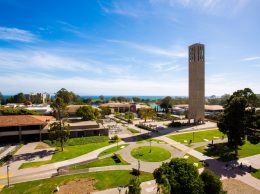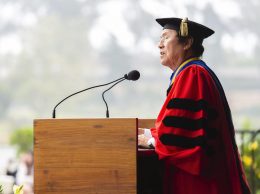UC Santa Barbara said Dec. 5 that the U.S. Army has renewed its contract with the university’s Institute for Collaborative Biotechnologies, providing an additional $48 million over three years to support biology-related research.
The new funds extend a decade of unclassified research in areas such as biotechnology tools, futuristic materials, energy generation and storage, systems and synthetic biology and neuroscience.
The Institute for Collaborative Biotechnologies was established in 2003 and has received more than $118 million in funding from the Army during that time. The university said the center has averaged 50 research projects per year, and that the contract with the U.S. Army Research Laboratory-Army Research Office has supported hundreds of graduate students.
“The unclassified research made possible by the ICB is 20 years ahead of its time and enables technological advances that will benefit society in many different ways,” the institute’s director of technology, David Gay, said in a statement. “Over the past decade, funding from the Army has resulted in bio-inspired research results that have opened doors for applications in materials, biotechnology, sensors, network science and cognitive neuroscience.”
One project researchers are currently working on centers around understanding how enzymes produced by plant fungi work at the molecular level. The results could help researchers engineer synthetic enzymes that can break down plant biomass for efficient biofuel production, UCSB said.
Another study looked at the microscopic structure and properties of gecko feet. The findings led to the creation of reversible adhesion technology that can support weight while also offering an easy mechanism for release.
Researchers have also developed a molecular sensor that can detect drug concentrations in living tissue. The findings could lead to real-time measurement of the dosage and effectiveness of therapeutic drugs.






 Print
Print Email
Email
















